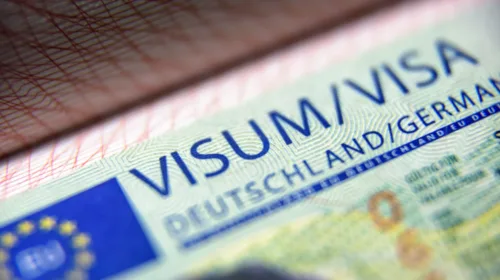Germany Work Permit Visa is now open due to labor and workers shortage, Yes!! you heard it right. Germany actually changed its immigration system for skilled workers in March 2024! This visa is criteria based upon 4 major pillars and you must meet the three of them. Germany now a days facing huge shortage or skilled workers and labors due to which presently facing obstacles in transportation field, skilled labors work etc.
This reform aims to address the country’s record-high worker shortage by encouraging more non-EU skilled workers to move to Germany. Here are the key points about the upcoming changes:
- Points-Based Immigration Law: The new law will introduce a points-based Chancenkarte (Opportunity Card). Jobseekers who can financially support themselves will be allowed to live in Germany for up to a year while they search for work. Unlike current visas, the Chancenkarte will allow holders to switch jobs and engage in temporary or part-time work during their job search.
- Family Reunification: Skilled workers arriving in Germany after March 2024 will have greater opportunities to bring their families. They can apply for a family reunification visa to bring their parents or in-laws to the country. Additionally, rules around bringing nuclear family members (spouses and minor unmarried children) will be relaxed, eliminating the need to prove adequate living space12.
- Easier Entry for Qualified Workers: Starting from March 1, 2024, qualified workers from third countries will find it easier to enter Germany for work purposes. The new Immigration Act will facilitate the immigration process for skilled workers with vocational training and practical knowledge of their profession34.
Jobs Opportunities in Germany Listing <– here is a jobs listed in labors sector as well as required high skilled workers.

Applying for a Visa at the German Embassy
You can apply for either an Employment Visa or a Job-Seeker Visa for Germany. The type of visa you apply for depends on whether you have a job offer or not:
- You apply for an Employment Visa if you already have a job offer from a company in Germany and you want to enter the country to get a work and residence permit.
- You apply for a Job-Seeker Visa if you want to get germany work permit visa and go to Germany and find a job. It is valid for six months, during which time you have to look for and find work. Once you have found a job, you can then submit your application for the work and residence permit.

How to Get Germany Work Permit Visa?
This reform represents a positive step toward attracting skilled talent to Germany and addressing workforce needs.
- The new law makes it easier for skilled workers to get visas.
- There’s a new permit called the “Chancenkarte” (Opportunity Card) that allows skilled workers to get germany work permit visa to enter Germany for up to a year to find a job.
Also Read Job Opportunities in Canada 2024
Here are some resources to learn more:
- Germany’s new Skilled Workers Immigration law is effective from 1st March! here you find the germany work permit visa latest information. Y-Axis: https://www.y-axis.com/news/germanys-new-immigration-points-calculator-to-attract-skilled-foreign-professionals/ explains the three stages of the new law.
- The new Skilled Immigration Act Make it in Germany: https://www.make-it-in-germany.com/en/visa-residence/skilled-immigration-act covers the new
Certainly! The German Opportunity Card (Chancenkarte) is designed to attract skilled workers from non-EU countries. Here are the eligibility requirements for Germany Work Visa Permit:
- Jobseekers: Individuals who can financially support themselves can apply for the Chancenkarte. It allows them to live in Germany for up to a year while searching for work. During this period, they can switch jobs and engage in temporary or part-time work.
- Qualified Workers: Starting from March 1, 2024, qualified workers with vocational training and practical knowledge of their profession will find it easier to enter Germany for work purposes. towards Germany Work Visa Permit The new Immigration Act facilitates the immigration process for such skilled workers.
- Family Reunification: Skilled workers arriving in Germany after March 2024 have greater opportunities for family reunification:
- They can apply for a family reunification visa to bring their parents or in-laws to the country.
- Rules around bringing nuclear family members (spouses and minor unmarried children) have been relaxed, eliminating the need to prove adequate living space.
These changes aim to address workforce needs and encourage skilled talent to contribute to Germany’s economy.
Certainly! Here’s a comprehensive article on the Germany Skilled Worker Visa and the newly introduced Opportunity Card (Chancenkarte) for skilled workers. Let’s delve into the details:
Germany Skilled Worker Visa and Opportunity Card: A Comprehensive Guide
1. Introduction
Germany is actively addressing its skilled worker shortage by implementing reforms in its immigration policies. The new Opportunity Card (Chancenkarte) is a pivotal part of this effort. Let’s explore what it entails.
2. What is the Chancenkarte?
The Chancenkarte serves as a 12-month visa specifically designed for skilled workers from non-EU countries. Its primary purpose is to facilitate their move to Germany for job hunting. Unlike previous visas, the Chancenkarte streamlines bureaucratic hurdles related to work-related immigration. Here are the key points:
- Point-Based System: Similar to Canada’s Comprehensive Ranking System, the Chancenkarte assigns points based on relevant qualifications such as work experience, language skills, and ties to Germany.
- Living and Working in Germany: Holders of the Chancenkarte can live in Germany for up to a year while actively seeking full-time employment. During this period, they can work part-time (up to 20 hours per week) or participate in a two-week work trial and get Germany Work Visa Permit.
- Path to Permanent Residence: Once employed, applicants can transition to a work residence permit. Over time, they may even qualify for permanent residence.
3. Eligibility and Requirements
Path 1: Fully Recognized Foreign Qualifications
- University Degree or Vocational Training: Applicants with fully recognized foreign qualifications (university degree or vocational training) directly qualify for the Chancenkarte.
- Time-Consuming Process: Note that this path involves a lengthy recognition process by the German government, so for Germany Work Visa Permit similar to the existing Job Seeker Visa.
Path 2: No Recognition Required
- Simplified Process: The Opportunity Card introduces a significant change by eliminating the need for foreign qualifications recognition.
- Requirements:
- Age: Applicants must be under 40 years old.
- Language Skills: Proficiency in German (A2 intermediate level) or English (B2 level) for Germany Work Visa Permit.
- Professional Experience: A minimum of three years of professional experience.
4. Launch Date
The Chancenkarte is set to launch in June 20241. While the exact date remains unannounced, it is expected to be around June 1st.
5. Benefits and Impact
The Opportunity Card aims to attract international talent and address the shortage of skilled labor in various fields. By simplifying immigration requirements, Germany encourages academics and skilled workers to contribute to its economy.
In summary, the Chancenkarte represents a positive step toward making Germany an attractive destination for skilled professionals for Germany Work Visa Permit. If you aspire to work in Germany, keep an eye out for its official launch!
For more information, visit the official German government website1.
References:




